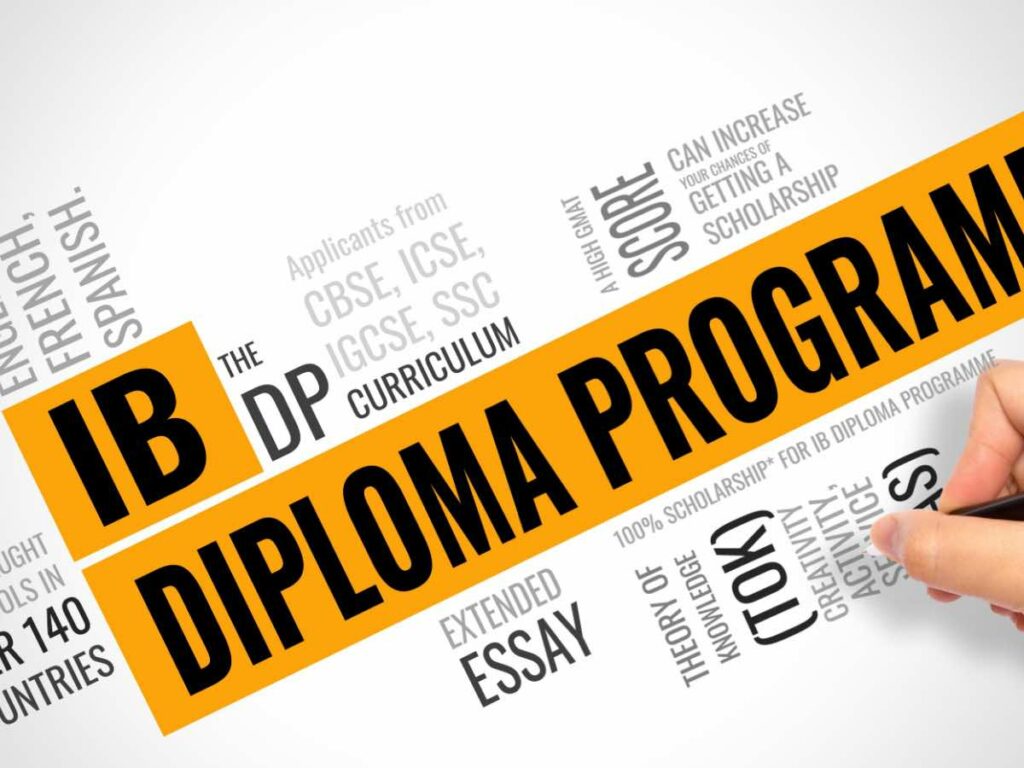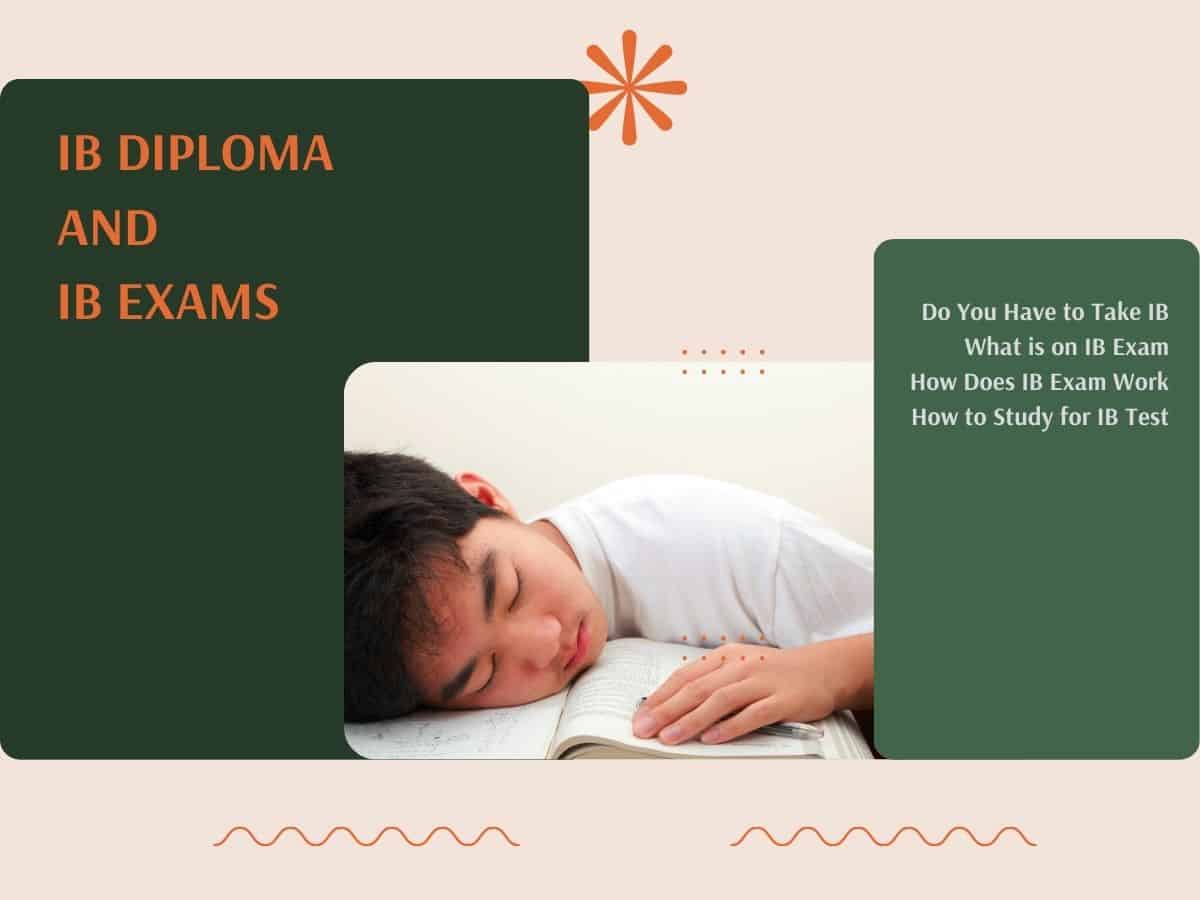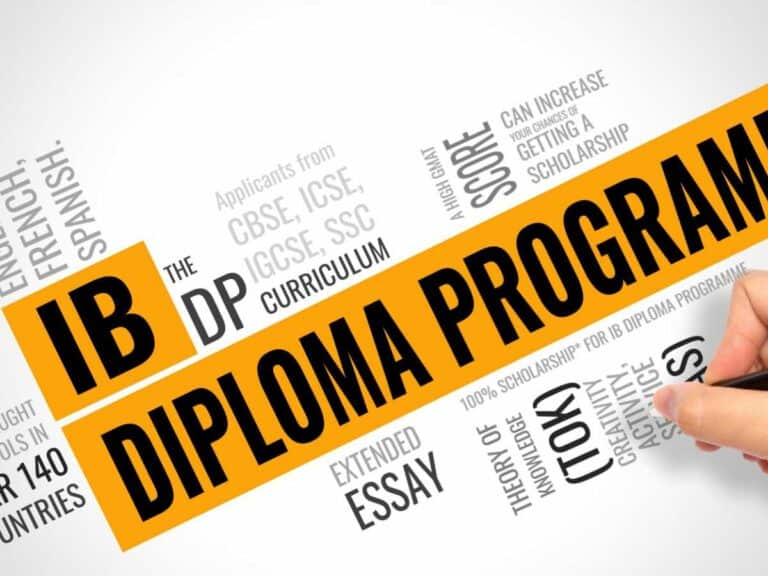Your Comprehensive Guide to Mastering the IB Diploma and Exams
The International Baccalaureate (IB) program is like the Advanced Placement (AP) program by the College Board in that it also enables you to obtain college credit and increase your college admissions chances by taking college-level courses and exams.
It emphasizes critical thinking and global awareness to provide a well-rounded education.
Offered in 140 countries in five languages, you can enroll in the IB diploma program (IBDP) in a certified IB school — there are over 1,200 IB schools in the United States, roughly 91% of which are public schools.
There’s more to the IB program than meets the eye.
For instance, while you have to take and pass six exams to earn an IB diploma, you can take individual IB exams, although it will lead to a certificate instead of a diploma.
In addition, you cannot take any IB exam without taking the corresponding IB course.
The IBDP also consists of two types of assessments:
- Internal assessment. It involves various evaluative activities such as reporting, fieldwork, and laboratory that a high school teacher administers and grades.
- External assessment. It comprises exams in the form of essays, case-study questions, short-response questions, and, rarely, multiple-choice questions an independent examiner administers and grades.

Enrolling in the IBDP
Each AP course is one semester long.
On the other hand, the IB diploma program takes two academic years to complete.
Because of this, it’s a must to consider the time commitment that comes with the IBDP before you enroll in it, and you should also weigh the pros and cons and contrast them against those of the AP program.
IB Diploma vs. IB Certificate
As mentioned, the IB diploma program usually takes two years to complete.
Throughout its duration, high school students must take up to six courses — at least three should be higher level (HL), and the rest can be from standard level (SL).
Teens who do not have two years to spare may opt for an IB certificate instead.
Unlike the IBDP which consists of six courses, an IB certificate consists of only one course.
You can take as many IB certificates as you like, depending on how many individual IB courses you wish to register for — it’s similar to the AP program, where students can choose which AP courses they like.
Attending classes is not required when completing an IB certificate.
You can study the lessons online and attain completion in much less time than an entire IB program.
What It’s Like Being an IBDP Student
IB diploma program students study six courses throughout the two years.
The courses come from six subject groups:
- Studies in Language and Literature
- Language Acquisition
- Individuals and Societies
- Sciences
- Mathematics
- The Arts
Getting good grades in the courses of your choosing is not enough.
As an IBDP student, you must also pass three critical components of the IBDP:
- Theory of Knowledge (ToK)
- Extended Essay (EE)
- Creativity, activity, and service (CAS)
As you can see, you should excel not only academically but also extra-academically to earn the IB diploma.
IBDP Cost: Is It Expensive?
According to one high school, an entire IB diploma program costs approximately $868.
It’s not easy to determine the exact cost of enrolling in the IBDP since expenditures can vary from school to school — different high schools can teach specific programs only, depending on which ones they pay for.
Consult with your high school to have a much better idea of how much registering will cost you.
One thing is clear, though: enrolling in the IBDP is more expensive than registering for the AP program — AP courses are free of charge, but AP exams cost $94 each.
When Should I Take the IB Program?
The IBDP is designed for students 16 to 19 years of age.
Officially, the IB program starts in the junior year of high school and ends in the senior year.
However, in most instances, students interested in earning an IB diploma register for the program while still in the 8th grade to gain admission to it as first-year high school students.

Taking IB Exams
When mentioning IB exams, AP exams are not far behind.
It’s because both are available to high school students preparing for college admissions, although taking IB exams and AP exams as well is unfeasible for many.
What are IB exams like?
Sitting for IB exams provides a different experience from taking AP exams.
While AP exams come with multiple-choice questions, IB exams are almost exclusively written responses — guessing by picking an answer option you believe is the correct one isn’t possible.
It doesn’t mean you won’t encounter multiple-choice questions when taking IB exams.
You may, although it’s rare for them to make an appearance.
IB Exam Length
Something that IB exams have in common with AP exams is the length.
AP exams can be anywhere from two to three hours long.
Many IB exams are three hours long, although some are as short as 45 minutes only — how long an IB exam lasts depends on the content, number of questions, and difficulty level.
Often, an IB exam is three pages long.
Standard Level vs. Higher Level IB Exams
IB courses come in two forms:
- Higher level (HL)
- Standard level (SL)
In a nutshell, HL classes talk about various concepts introduced in SL classes more in-depth — they are more rigorous than SL classes, but difficulty is a subjective matter.
Students who wish to obtain an IB diploma must combine HL and SL classes.
Like IB courses, there are also HL and SL IB exams.
Needless to say, HL exams are longer and more challenging than SL exams, which means that you must study more and ensure you are comfortable with answering more questions under time pressure.
What is a Good IB Score?
A passing score on an individual IB exam is 4.
Needless to say, it’s a good score for any IB test-taker.
Here’s the IB grade scale used for the IB exams:
| Score | Description |
|---|---|
| 7 | Excellent |
| 6 | Very Good |
| 5 | Good |
| 4 | Satisfactory |
| 3 | Mediocre |
| 2 | Poor |
| 1 | Very poor |
The grading system for the IBDP is entirely different.
The highest possible grade you can get as an IB program student is 45.
The 42 points come from the total score of your six IB exams, while the remaining 3 points come from your EE and ToK.
A score of 38 is good.
However, aiming for a 40 or higher is a great idea if you want increased admissions chances at competitive colleges.
Should You Take All IB Exams?
You must take all IB diploma exams if you are an IBDP student and wish to earn your IB diploma.
High schoolers may take specific IB exams only, but it will not make them eligible for the IB diploma.
It’s also a waste of money if they paid for the entire IB program only to deprive themselves of the opportunity to increase their college admissions chances by having an IB diploma under their belt.
However, individual IB exams may still allow you to earn college credit, depending on the school’s policy.
Can You Take IB Exams Online?
The first online IB diploma program became available in 2022.
While a British international school administered it, students across the globe participated in it.
Both internal and external assessment components of the IBDP took place virtually, employing various tools ranging from real-time discussions to virtual reality (VR).
To date, only a small number of official IB schools conduct the IB program online.
Preparing for IB Exams
Generally, students must prepare for IB exams four to five months before the test date.
How long you should gear up for IB exams depends on your confidence level on each of the examinations.
It’s critical that you look into the syllabus to know the subjects covered and the topics included in each, thus providing focus and direction to your IB exam preparation.
Please note that the IB program is globally focused.
That said, it’s a good idea to stay updated with what’s happening all over the planet by reading books, newspapers, and other materials that can help you be aware of and understand world affairs.
Retaking IB Exams
Test-takers who are unsatisfied with their IB exam scores may register for a retake.
Generally, retaking standardized tests is allowed. This is true for the SAT and ACT. The same applies to AP exams, which are the direct competition of IB exams.
Cost of IB Exam Retakes
Each IB exam you retake costs $119, the average asking price for most high schools.
However, some retakers may have to pay more, depending on the price tag a school wishes to attach to it.
It’s worth noting that you also have to take care of a registration fee, usually costing $172.
There’s no denying that retaking IB exams is far more expensive than retaking AP exams, which costs $94 each — prepare well for your initial sitting for IB exams to avoid costly retakes.
When You Can Retake the IB Exam
You can retake IB exams during their next administration, which is after six months.
Since it’s in May when most high schoolers take IB exams for the first time, you have to wait until November to be able to retake the IB exam/s you wish to sit for again to improve your score/s.
Just see to it that you do your best the next time you sit for IB exams again.
It’s because high school teens can take them up to three times only in three different exam sessions.
After your third retake and you’re still unhappy with your scores, you have no other choice but to make do with them.
Read Next: What is PSAT?
Disclaimer: The views and opinions expressed in this article are those of the authors and do not necessarily represent those of the College Reality Check.

